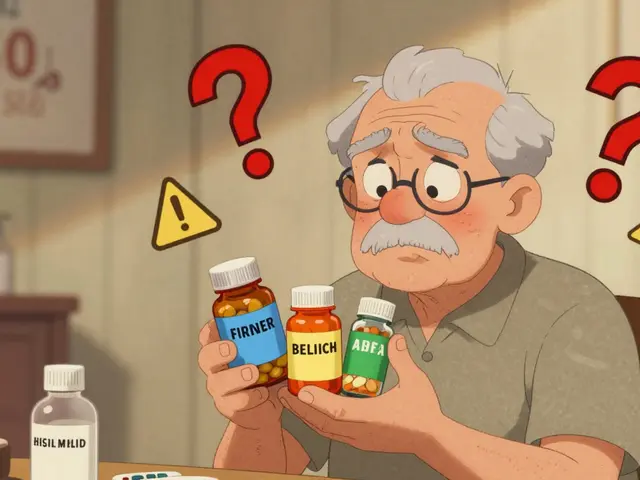Bisphosphonates: What they are and why they matter
Here’s a fact that surprises people: one yearly IV dose of some bisphosphonates can help keep bones stronger for a year. That’s why these drugs are a mainstay for osteoporosis and other bone problems. If you or a loved one is facing bone loss, knowing how bisphosphonates work and how to use them safely matters.
Bisphosphonates slow down the cells that break down bone (osteoclasts). Slower breakdown means bone stays denser and less likely to break. Doctors prescribe them for osteoporosis, Paget’s disease, and to prevent bone complications from cancer that has spread to bone.
Common bisphosphonates and how they’re given
Oral pills you might see: alendronate (Fosamax), risedronate (Actonel), and ibandronate (Boniva). IV options include zoledronic acid (Reclast, Zometa) and pamidronate (Aredia). Oral drugs are taken at home; IV drugs are given in a clinic. Your doctor will choose based on your condition, kidney function, and how well you can tolerate the pill rules.
How to take them right and what to watch for
Oral bisphosphonates need special handling: take on an empty stomach with plain water, swallow whole, then stay upright for 30–60 minutes and wait before eating or taking other meds or supplements. Why? That lowers the chance of stomach or esophagus irritation and helps the drug absorb properly.
Side effects to know: heartburn or esophageal irritation, flu-like symptoms after IV infusion, and rare but serious problems like osteonecrosis of the jaw (mostly after dental surgery) and atypical femur fractures with long-term use. Low calcium can happen, especially with IV drugs—so doctors check calcium and vitamin D first.
Before starting, tell your doctor about dental problems, low calcium, kidney issues, and all your meds and supplements. Dental checkups are a smart idea before IV treatment. Also, separate bisphosphonates from calcium, antacids, iron, or magnesium supplements—take those at a different time.
How long should you stay on them? That depends. Many people take bisphosphonates for 3–5 years, then reassess with a bone density (DEXA) scan and fracture risk review. Long-term plans balance fracture prevention against rare side effects.
Buying drugs online? Use only licensed pharmacies that require a prescription. IV bisphosphonates must be given by professionals in a clinic. If something sounds too cheap or the seller won’t confirm a prescription, walk away.
Questions for your doctor: Do I need a DEXA scan now? Which bisphosphonate fits my health profile? Any need for a dental check before treatment? Clear answers will help you feel safer and get better results.
Bisphosphonates aren’t a miracle, but they’re powerful tools when used correctly. With the right checks and simple precautions, they can cut fracture risk and help you keep living the life you want.

Residronate and Bone Infections: A Treatment Option
In my latest blog post, I explored the potential of Residronate as a treatment option for bone infections. I discovered that this drug, which is usually prescribed for osteoporosis, has shown promising results in combating bone infections such as osteomyelitis. Its unique ability to target and strengthen the affected area makes it an interesting alternative to traditional antibiotics. However, it's important to note that more research is needed before Residronate becomes a widely accepted treatment for bone infections. Overall, it's an exciting development in the medical field and I'll be keeping an eye on any further advancements.
Read More




